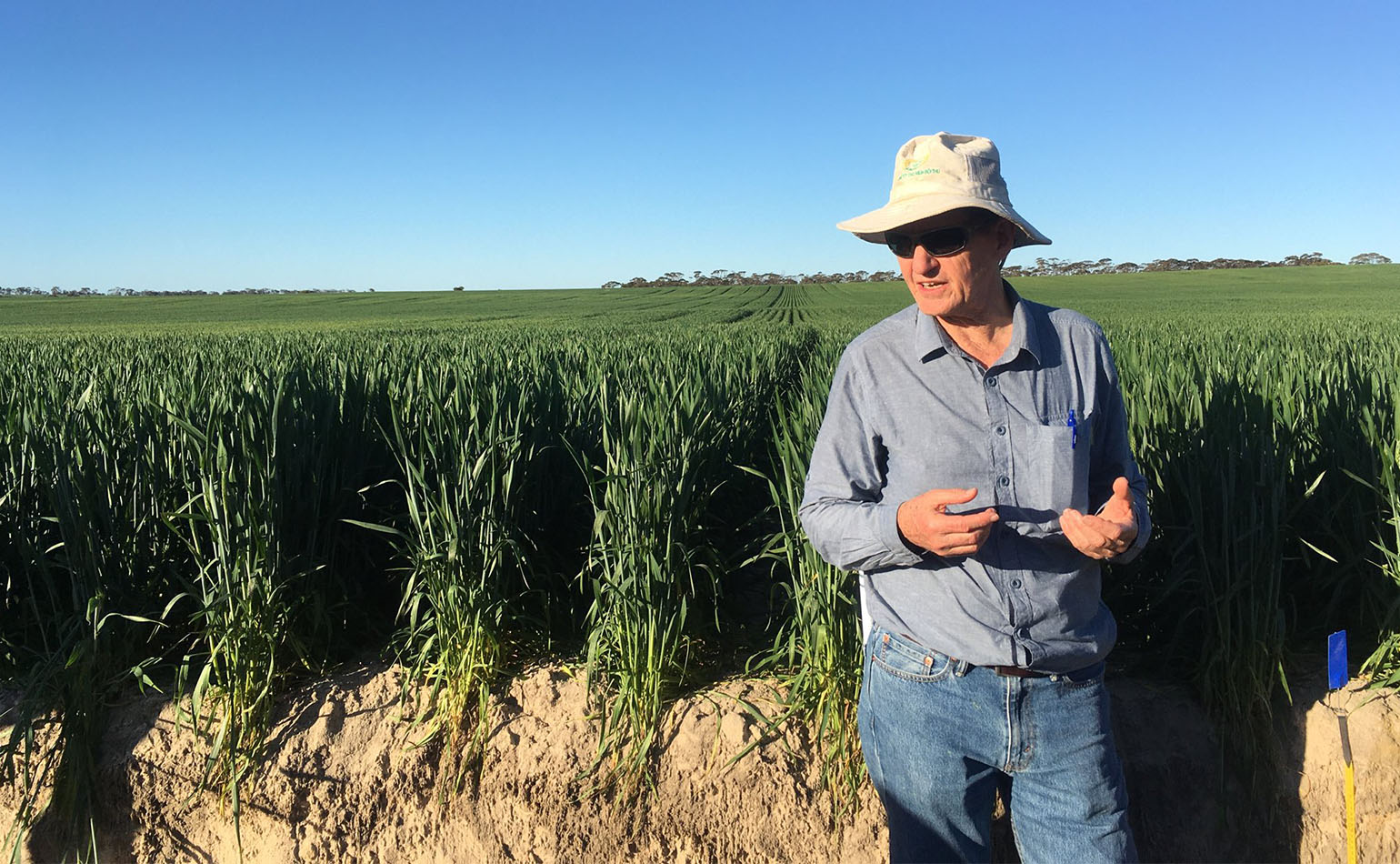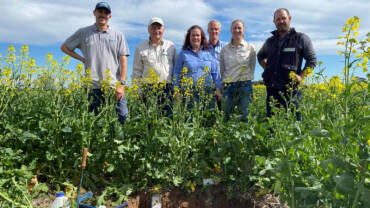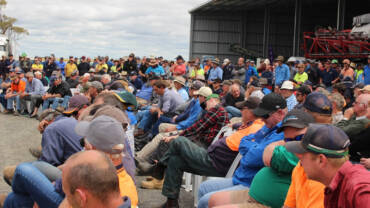Serious research making a practical difference
| Posted Mar 04,2021It’s the combination of agriculture, science and making a practical difference that inspires Soil CRC research scientist and Professor of Sustainable Land Management at Murdoch University, Dr Richard Bell.
“I enjoy in-depth research and seeing its application to farmers; I have a deep respect for farmers and their ability to produce crops. Being able to contribute to that through the study of soils keeps me engaged and motivated.
I believe agriculture is a very honourable profession. Wherever I am in the world, I love going onto farms, talking to farmers, seeing what they’re doing and why they do it. As a scientist, I like to think about what we already know that could be of benefit to farmers and what are the questions and constraints that exist on farms that science and research could help to address,” he explains.
Richard’s appreciation for agriculture and farmers runs deep. He grew up on a dairy farm in the idyllic south west region of Western Australia long before vineyards took over the area, morphing it from sleepy backwater to the much-loved Margaret River wine region.
“My mother had a lot of influence on my love of soil and my father encouraged questioning, which is fundamental to science,” he says.
These two major influences led him to his undergraduate degree at the University of Western Australia, studying botany and soils. After graduating, he went to Fiji, teaching applied soil science to extension officers at the Fiji College of Agriculture.
“It was a steep learning curve, with totally different soils and a different environment,” he says.
Returning to Australia with a new love of tropical plant nutrition and soils, he embarked on his PhD at the University of Queensland studying calcium nutrition in tropical legumes.
After completing his PhD, Richard headed back west and began a post doc position at Murdoch University that was funded by Australian Centre for International Agricultural Research (ACIAR), working in Thailand and Malaysia.
“I’ve worked all through South-East Asia with ACIAR projects. There’s only been one year since 1984 where I haven’t been involved in an ACIAR project. That experience has bought a fantastic mix of applied science, in-depth science and real-world results within a development context,” he says.
COVID has brought some challenges to these projects, with travel to Asia virtually impossible.
“So much of ag science is about being in the field and interpreting soils in relation to crop performance, land use and hydrology and understanding how that fits with a community’s aspirations. You can’t do that through zoom, you need to be there,” he explains.
He has also worked on a diverse range of Australian research projects with the GRDC and in mine rehabilitation. Now he is leading a Soil CRC Project, New amendments for sandy soils in collaboration with Federation University, Primary Industries and Regions SA, West Midlands Group and Australian Organics Recycling Association (AORA).
The project is exploring what amendments can be added to sandy soils to make them more productive.
“Sandy soils aren’t high performance soils but there is a lot we can do to improve their performance. They usually have more than one limitation, but they all boil down to lack of clay or organic matter in the soils. This is critical to water storage and crop nutrition. When we get more organic matter in the soils, we can grow more crops, which puts more carbon back into the soil and so it improves,” he says.
Richard sees great value in being part of the Soil CRC because of the national scope, the grower group involvement, cross disciplinary research and the long-term investment.
“Working in different states has been vital for our sandy soils project. The grower groups are also an important part of the package. Keeping them in mind for our research, and vice versa is critical for our project, but also for research beyond the CRC.
The long-term nature of the Soil CRC is rare. It puts a focus on delivery to end users and not just a single project. The Soil CRC has an amazing diversity of people, institutions, and research areas. I really value the cross over between social science, economics, IT and material science. It adds stimulation and new ideas,” he says.
In the future, Richard hopes that the Soil CRC will achieve the development of some transformational technologies and financial instruments that make it easier for farmers to follow sustainable practices.
“This can make the difference between research that stays in papers and research that influences what people do.”





